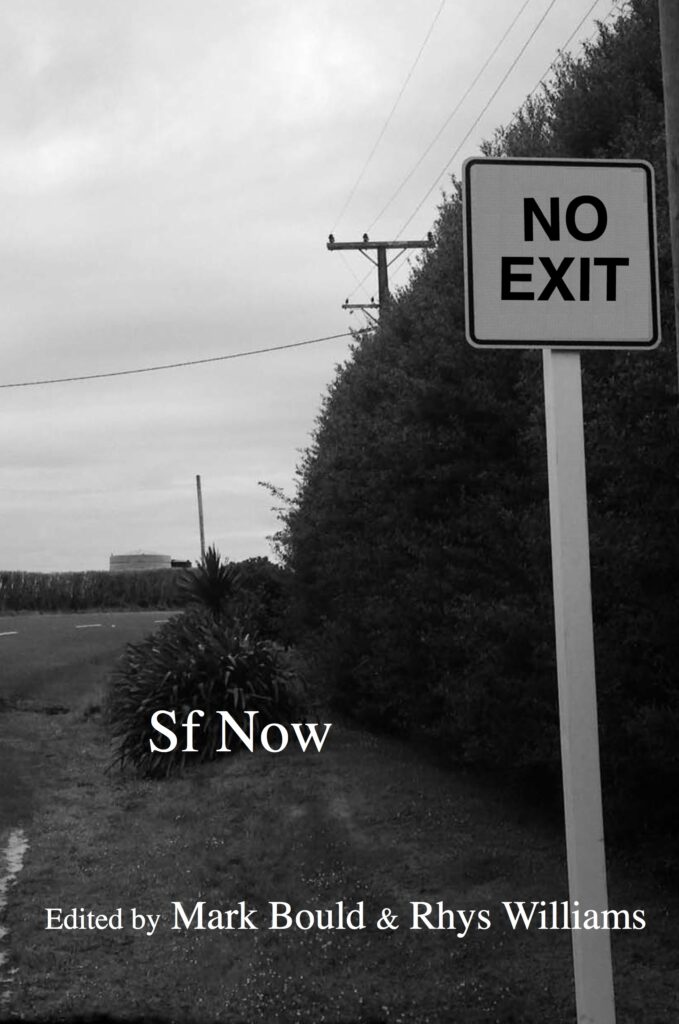Comments
“A marvelous collection that highlights why science fiction is more varied, more vibrant, and more important than ever. Including contributions by established voices and emerging ones, Sf Now provides us with a thorough map of the issues, problems, and questions investigated by contemporary science fiction and sf theory, including the boundary between animal and human, capitalism realism, world systems, and world literature, Afrofuturisms, indigenous futurisms, transhumanism, and Humanity 2.0, and posthumanism—and much, much more. The essays, interviews and reviews expertly assembled by editors Mark Bould and Rhys Williams interrogate the complex operations of the social, political, and cultural imaginaries we produce at multiple sites. Taken together, the contributions to this issue of Paradoxa bring to life the critical energies that only the future can offer us in understanding the dynamics of the now, and which might yet animate better worlds still to come.” — Imre Szeman, University of Alberta, editor (with Michael Groden & Martin Kreiswirth) of Contemporary Literary and Cultural Theory: The Johns Hopkins Guide (2012).
“Sf Now comprises a bracing assessment of the state of the art of science fiction—its increasing variety and generic fluidity; the inexorable metamorphosis of sf tropes into our late-capitalist, post-human lived environment; the constriction and darkening of our imaginable futures in the face of neoliberal political economy and ecological degradation; and its stubborn kernel of utopian desire. Collecting together the work of old pros and exciting newcomers, Sf Now also testifies to the intellectual vitality and growing complexity of the field of science fiction studies. For all concerned about the shadows futurity is casting upon our present, SF Now is an illumination and a provocation not to be missed.” — John Rieder, University of Hawaii, author of Colonialism and the Emergence of Science Fiction (2008).
“Mark Bould and Rhys Williams bring together some of the field’s best scholars and artists to explore sf as a global language that dramatizes the hopes and fears of people across continents, cultures, and media. The authors featured in this collection mobilize an impressive array of cutting-edge critical concepts from politics, economics, and art, mixing and re-mixing them with sf theory to provide a fresh new vantage point from which to consider the old claim that sf is ‘the literature of late capitalism.’ While many of the essays and interviews included in Sf Now show how sf illustrates late capitalism’s devastating apocalyptic tendencies, others explore how genre practitioners draw on earlier moments of catastrophic change to speculate about the range of critical and creative practices that might allow humans (and for that matter, all living beings) to survive and even flourish in the world of tomorrow. An excellent introduction to sf writing and scholarship for those who are new to the discipline, and a wonderful update for veterans.” — Lisa Yaszek, Georgia Tech, author of Practicing Science Fiction: Critical Essays on Writing, Reading, and Teaching the Genre (2010).
“A stunning collection of some of the most exciting and important voices in science fiction criticism, with a focus on contemporary trends, including such topics as capitalist realism, animal others, and the Energy Humanities. This collection is essential for anyone interested in where SF is now in our historical present, and where it is headed in the near future.” — N. Katherine Hayles, Professor of Literature, Duke University, author of How We Think: Digital Media and Contemporary Technogenesis (2012).

